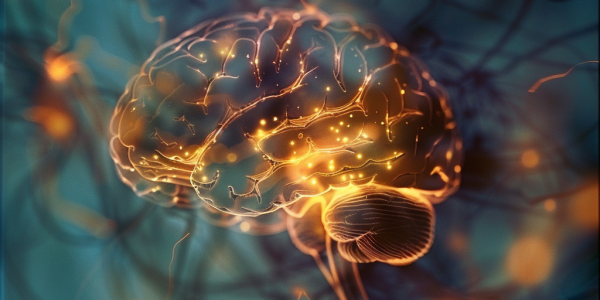Study Reveals Neurogenesis’s Key Role in Cognitive Functions and Epilepsy
A groundbreaking study published in Cell Stem Cell reveals the crucial role of neurogenesis in adult brains, particularly its impact on verbal learning and memory. Conducted by researchers at USC, the study highlights how generating new neurons can mitigate cognitive decline, especially in patients with drug-resistant epilepsy. The findings suggest that enhancing neurogenesis may lead to innovative therapeutic strategies for improving cognitive functions in adults suffering from epilepsy and related disorders.
Visual Sensitivity May Predict Dementia Up to 12 Years Early
A recent study from Norfolk reveals that visual sensitivity may predict dementia up to 12 years before diagnosis. This groundbreaking research highlights the connection between eyesight and cognitive decline, suggesting that visual tests could be key in early detection and intervention for Alzheimer’s disease. By monitoring visual processing and response times, healthcare providers can identify early indicators of dementia, potentially improving outcomes for at-risk individuals.
Study Links Loneliness to Increased Risk of Dementia
A recent study from Florida State University reveals a concerning link between loneliness and a 31% increased risk of developing dementia, including Alzheimer’s disease. Analyzing data from over 600,000 participants, the research emphasizes the detrimental effects of social isolation on cognitive health, urging communities to prioritize social connections to mitigate dementia risks.
Exploring Technology’s Impact on Mental Health in ‘Tell Me Why’ Podcast
In the latest episode of ‘Tell Me Why,’ host Maria Botros discusses the impact of technology on mental health with Devika Mankani, Chief Psychologist at Fortress Education. They explore how constant connectivity and smartphone use are affecting our attention spans and cognitive abilities, urging listeners to reassess their tech habits. This insightful conversation highlights the importance of mindfulness and balance in our digital interactions, making it a must-listen for anyone concerned about mental well-being in today’s fast-paced world.
Understanding Digital Privacy and Drug-Induced Cognitive Deficits
Explore the crucial insights into digital privacy and data consent, alongside groundbreaking research on cognitive deficits linked to drug use. Understand how drug exposure alters brain function and the potential for targeted therapies to reverse memory impairments. Stay informed about the implications of your data choices and the latest in substance use research.
Vaping Linked to Cognitive Decline in Young Adults
A recent study presented at the American Neurological Association annual meeting reveals a troubling link between vaping and cognitive decline in young adults. Conducted in South America with 405 participants, the research shows that individuals who smoke or vape score significantly lower on cognitive assessments compared to their non-smoking peers. These findings highlight the urgent need for awareness about the cognitive risks associated with vaping, particularly among college students.
AI Advances Toward Mind-Reading Technology: Implications and Ethical Considerations
The rapid advancements in artificial intelligence (AI) are bringing us closer to the possibility of machines interpreting human thoughts. Researchers at MIT are studying brain wave patterns, revealing insights that could transform clinical diagnostics and enhance communication for individuals with disabilities. As AI’s capabilities grow, ethical considerations surrounding privacy and consent become increasingly important. The intersection of neuroscience and AI is set to redefine our understanding of consciousness and cognition, marking a thrilling journey into the future.
Study Reveals Cognitive Impacts of Inflammation in Rheumatoid Arthritis Patients
A groundbreaking study published in RMD Open reveals significant insights into cognitive function in rheumatoid arthritis (RA) patients with high inflammation levels. This research highlights the correlation between systemic inflammation and cognitive impairment, emphasizing the need for comprehensive treatment strategies that address both physical and cognitive health in RA management.
Declining Credit Scores Linked to Early Signs of Dementia in Older Adults
Recent research from Georgetown University and the New York Federal Reserve reveals a troubling link between declining credit scores and early signs of dementia, particularly Alzheimer’s disease, among older adults. The study analyzed data from over 2.4 million individuals, highlighting that financial health may reflect cognitive well-being. As credit scores drop, it could indicate cognitive decline up to five years before an official Alzheimer’s diagnosis. Understanding this connection may lead to earlier interventions and support for those at risk, emphasizing the importance of monitoring financial health in aging populations.
Delirium in Older COVID-19 Patients Linked to Decline in Functional and Cognitive Abilities
A recent study published in JAMA Network Open found that older COVID-19 patients who experience delirium during their hospital stay may face a decline in functional and cognitive abilities post-discharge. Factors exacerbated by the pandemic, such as extended hospital stays and social isolation, contributed to the increased risk of delirium. In-hospital delirium was associated with higher functional disability rates and worsened cognitive symptoms in the 6 months following discharge.










